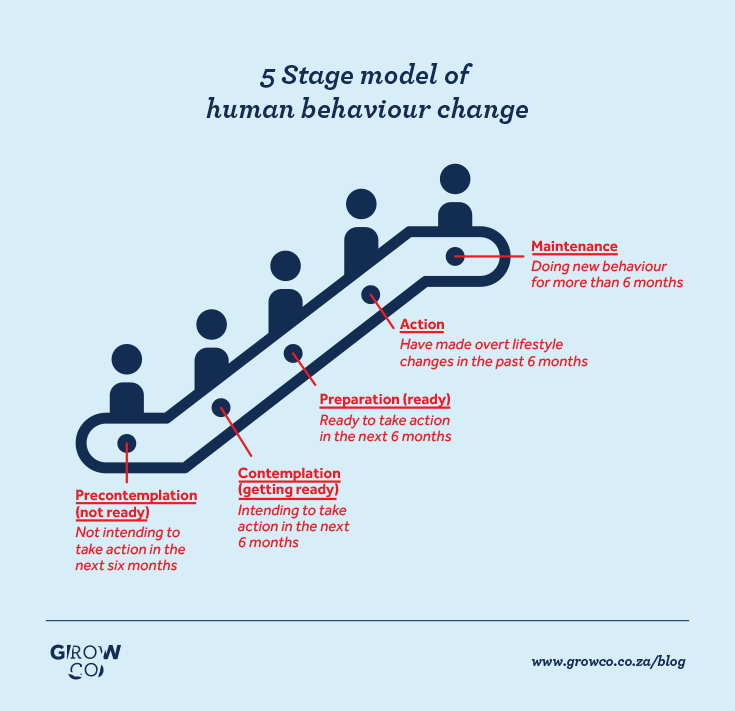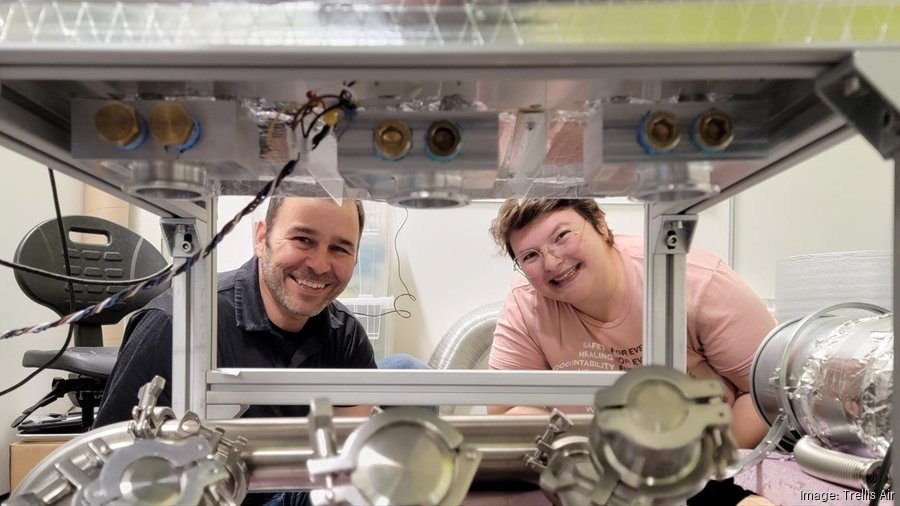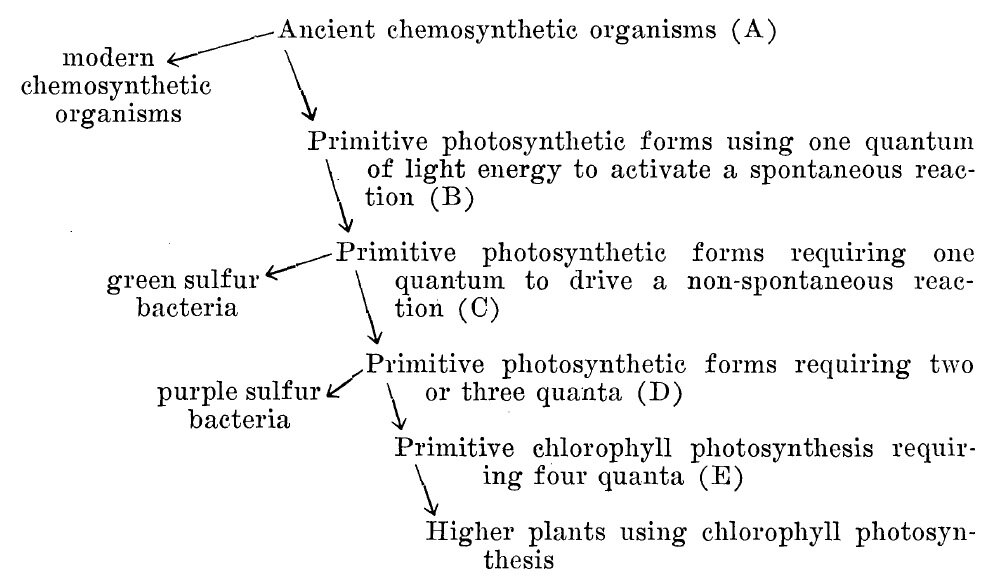Change in human behavior is an intriguing phenomenon that reminds us of the inevitable evolution of our identities and actions. As the landscape of our lives shifts—be it through personal development opportunities or psychological insights—understanding how and why we adapt becomes crucial. The psychology of change suggests that whether we consciously pursue self-improvement strategies or respond subconsciously to life’s challenges, our capacity for growth is ever-present. Insights from the Harvard podcast shine a light on the importance of embracing change, showcasing stories and research that encourage optimism and resilience in the face of uncertainty. In a world that frequently pushes for transformation, recognizing our inherent ability to adapt can serve as the foundation for a more fulfilled existence.
The dynamics of human transformation reflect a complex interplay of habits, societal influences, and internal motivations. At its core, the essence of human adaptation involves both intentional shifts and natural responses to experiences we encounter throughout our lives. Concepts such as psychological evolution and personal growth resonate strongly in discussions surrounding self-improvement, emphasizing the significance of embracing new perspectives. Podcasts like those from Harvard provide compelling narratives that reveal the multifaceted nature of our changing selves, offering listeners both relatable anecdotes and scholarly research. This conversation surrounding behavior modification invites us to consider how we navigate changes—whether we resist or embrace them, and the impact this has on our lifelong journey.
Understanding the Psychology of Change
The psychology of change delves into the mechanisms that govern how and why individuals change over time. Central to this is the idea that change is often influenced by various mental frameworks and social contexts. Research suggests that our capacity for change is not just a matter of willpower; it involves understanding the underlying psychological patterns that compel us to evolve. The contributions from experts in psychological science show that embracing change is a developmental journey influenced by our experiences, biases, and the continuous growth we undergo through life stages. This insight into the psychology of change serves as a foundation for personal development and self-improvement strategies.
One significant component in understanding change is our response to external and internal stimuli. As humans encounter new challenges, we often find ourselves at a crossroads where we must choose whether to adapt or cling to old behaviors and beliefs. For instance, experts emphasize that disillusionment can trigger either withdrawal or growth, indicating that our reactions can steer our personal development in various directions. This complexity in the psychology of change reveals not just our potential for growth but also underscores the necessity of harnessing self-improvement strategies to facilitate a successful transition into new stages of life.
The Impact of Change on Personal Development
Personal development is intrinsically linked to the changes we experience throughout our lives. Whether prompted by external circumstances, introspection, or milestones such as career transitions or family changes, the evolution of our identities often hinges on how we respond to these changes. Adopting a proactive stance towards change can yield significant positive outcomes, facilitating not just goal achievement but also a richer understanding of oneself. As highlighted in discussions among Harvard experts, the essence of personal development lies in our ability to perceive changes as opportunities for growth instead of obstacles to be feared.
Additionally, many self-improvement strategies revolve around the idea of embracing change rather than resisting it. The phrase ‘Let go or be dragged’ resonates deeply in contexts of personal transformation. It encourages individuals to consciously choose to navigate the complexities of change, leveraging experiences to cultivate resilience and adaptability. By developing a growth mindset—characterized by openness and the willingness to learn—individuals can foster a more enriching personal development journey that embraces all facets of their changing identities.
Understanding Change: The Generational Perspective on Adult Development and Growth
The way we perceive and respond to change varies significantly across different stages of life. Traditionally, changes in childhood attracted the most attention within developmental psychology, while the dynamics of adult change often remained overlooked. However, contemporary studies, including those by Harvard researchers, underscore that adults undergo profound transitions triggered by life experiences. The cumulative knowledge we gain through both triumphs and challenges continues to shape our identities in adulthood. Recognizing this ongoing transformation is critical for personal growth and fulfillment.
It’s essential to understand that individuals are continually evolving; our psychological make-up and life philosophies are in flux as we move through various life phases. Initiatives for self-improvement during adulthood can lead to significant advancements in happiness and well-being. By acknowledging that the ability to change does not cease after reaching adulthood but evolves into new opportunities for transformation, we can embrace the changes that come naturally with age.
Harnessing Self-Improvement Strategies Through Embracing Change
Harnessing self-improvement strategies is vital to one’s ability to embrace change positively. The intersection of personal development and change management underscores the importance of setting realistic goals while allowing flexibility. For example, individuals are encouraged to nurture a mindset where they perceive setbacks not as failures but as valuable learning experiences. This perspective is critically important because it transforms the approach to personal growth—highlighting that change can be uncomfortable yet deeply rewarding.
Moreover, experts recommend practical self-improvement strategies, such as mindfulness and reflective practices, to facilitate embracing change. Engaging in these practices helps boost resilience against anxiety that often accompanies transitions. As individuals cultivate awareness of their thoughts and feelings during periods of change, they’re better equipped to adapt and thrive. Essentially, the combination of self-awareness and committed efforts towards self-improvement can lead to a fundamentally fulfilling and enriched life experience.
The Role of Disillusionment in Human Change
Disillusionment often serves as a pivotal moment that can catalyze significant change within individuals. As articulated in discussions from the Harvard podcast, this emotional response can lead to emotional introspection, prompting individuals to reassess their beliefs and life trajectories. Some may succumb to bitterness, while others will harness disillusionment to foster growth and resilience through a more nuanced understanding of reality. This duality exemplifies how powerful our emotional responses can be in shaping our capacity for change.
Understanding the role of disillusionment in change encourages a deeper analysis of our motivations and reactions. Psychological insights reveal that this experience can sometimes serve as a wake-up call, urging individuals to leave behind toxic habits or beliefs for a more fulfilling path. Amid feelings of hardship, there lies an opportunity for development, urging individuals to be proactive in reconstructing their worldview and nurturing healthier relationships. Recognizing these dynamics equips us better to navigate through life’s inevitable transitions.
The Social Dimensions of Change in Adult Life
Social contexts are significant when discussing change in adult life. Various external factors, including cultural norms and societal expectations, can either support or hinder an individual’s journey toward self-improvement and personal development. For instance, the prevailing attitudes toward change can create environments where exploratory behavior is encouraged or stifled. In this light, acknowledging these social dynamics is essential for understanding how individuals can foster positive change in their lives.
Moreover, societal narratives regarding personal development play a crucial role in shaping individuals’ perceptions of change. The stories we tell ourselves and how we frame our experiences influence our ability to embrace transformations. Drawing insights from the Harvard podcast, it’s apparent that integrating the social dimensions into discussions about change illuminates reasons behind why certain groups or individuals embrace or resist change. Recognizing these nuances can empower individuals to pursue their personal growth actively, considering both internal and external influences.
The Paradox of Change and Stability
The relationship between change and stability presents an intriguing paradox, particularly within the context of personal development. Many individuals desire transformation and growth while also seeking a sense of permanence and continuity. As explored in discussions with experts, there exists an inherent contradiction in our yearning to improve ourselves while clinging to the narratives we construct about who we are. This dual desire can lead to internal conflicts, ultimately hampering personal growth if left unexamined.
Recognizing this paradox allows individuals to navigate their feelings toward change more effectively. It encourages an exploration of the narratives that shape our perceptions of stability and change. By reassessing what stability means—realizing it can exist alongside a commitment to continuous improvement—individuals can find a harmonious balance in their lives. Understanding that change is indeed a constant can empower a healthier approach to self-improvement, allowing for authenticity and adaptability through life’s phases.
Mindfulness as a Tool for Embracing Change
Incorporating mindfulness practices into daily routines has proven effective for individuals struggling with the fear of change. Mindfulness enhances awareness of present experiences, alleviating anxieties associated with the unknown. As experts suggest, cultivating a mindset grounded in mindfulness empowers individuals to approach change—be it in personal or professional realms—with curiosity rather than trepidation. This practice fosters a compassionate relationship with oneself, allowing for a greater degree of flexibility when confronted with transitions.
Additionally, mindfulness equips individuals to observe their thoughts and emotions without attachment or judgement, enabling them to respond to changes in a grounded manner. Engaging in mindfulness practices can illuminate the beauty of transformation and encourage a deeper appreciation for the journey of self-growth. Consequently, whether it be through meditation or reflective journaling, incorporating mindfulness helps to bridge the gap between our desire for stability and the inevitable changes we must welcome.
The Future of Self-Development in Changing Times
As we look towards the future of self-development, it’s essential to chart the evolution of personal growth within the context of constant change. Rapid technological advancements, shifting cultural narratives, and emerging social paradigms all contribute to an environment rife with potential for human transformation. Current self-improvement strategies will undoubtedly adapt to these changes, encouraging individuals to engage with new methods and perspectives that deepen their path toward personal development.
Moreover, with the increased global connectivity of today’s world, individuals are afforded access to a wealth of knowledge and resources to enhance their journeys toward self-improvement. From Harvard’s research insights to various online learning platforms, the opportunities for growth are limitless. However, navigating this plethora of information critically will remain crucial; discerning which strategies resonate with personal aspirations will shape future paths of development in this ever-evolving landscape.
Frequently Asked Questions
What are some effective self-improvement strategies for embracing change in human behavior?
Embracing change in human behavior can be facilitated through several effective self-improvement strategies. First, setting clear and achievable goals provides direction and motivation. Second, maintaining an open mindset allows individuals to adapt to new circumstances and learn from experiences. Incorporating mindfulness practices such as meditation can enhance self-awareness, making it easier to confront and accept changes. Seeking support from peers or mentors can also be invaluable as they provide encouragement and different perspectives on personal growth. Lastly, committing to continuous education and personal development keeps individuals engaged and resilient in the face of change.
How does the psychology of change influence personal growth?
The psychology of change plays a crucial role in personal growth by informing how individuals perceive and respond to life transitions. Understanding psychological principles, such as the stages of change model, helps individuals recognize their readiness to change and manage their behaviors effectively. Additionally, emotional resilience is enhanced through awareness of cognitive biases that may hinder change, such as negativity bias. By developing a growth mindset, individuals learn that change is a natural part of life, which empowers them to embrace new challenges and pursue self-improvement.
What insights can the Harvard podcast offer regarding change in human behavior?
The Harvard podcast provides valuable insights into change in human behavior by featuring discussions with leading experts in psychology and personal development. Episodes emphasize that change is an inevitable part of life, often driven by both conscious decisions and subconscious influences. The podcast highlights the importance of embracing change, citing research that shows people can change at any stage in life. Through real-life examples and scientific evidence, the discussions encourage listeners to reframe their perceptions of change, viewing it as an opportunity for growth rather than a threat.
Why is resistance to change considered detrimental to personal development?
Resistance to change is often detrimental to personal development because it can lead to increased suffering and stagnation. When individuals resist change, they may miss out on opportunities for growth, learning, and improved well-being. Psychological resistance can trap individuals in negative patterns or mindsets, making it difficult to adapt and evolve. Embracing change, in contrast, enables individuals to confront challenges, develop new skills, and ultimately enhance their overall quality of life. The mantra ‘let go or be dragged’ resonates with this principle as it encapsulates the necessity of accepting change for better progress.
How can individuals balance the desire for self-improvement with acceptance of their current selves?
Balancing the desire for self-improvement with acceptance involves recognizing that both aspects are essential for holistic personal development. Individuals can start by practicing self-compassion, which allows them to appreciate their current state while striving for growth. Journaling or engaging in reflective practices can help clarify personal goals without self-judgment. Setting realistic and incremental improvement goals fosters a healthier perspective on change, acknowledging that self-acceptance does not preclude growth. Ultimately, realizing that everyone is a work in progress can empower individuals to pursue change while still valuing their existing qualities.
What role does disillusionment play in prompting change within individuals?
Disillusionment can serve as a powerful catalyst for change among individuals by forcing them to reassess their beliefs, values, and expectations. When faced with disillusionment, people may react in various ways; some might withdraw and become cynical, while others may use the experience to gain a deeper understanding of reality, thus thriving. Recognizing disillusionment as a pivotal moment allows individuals to pursue personal growth and embrace change, ultimately leading them to develop resilience and a more expansive perspective on life.
| Key Points |
|---|
| Change is inevitable in human life; resisting it leads to suffering. |
| Intentional change often emerges from a desire for improvement or change in circumstances. |
| Disillusionment can lead to either bitterness and withdrawal or a richer understanding of reality. |
| Psychological change can occur at any life stage, challenging the myth that change only happens in youth. |
| Implicit biases can change over time due to shifts in societal attitudes, showcasing our ability to change. |
| Some individuals are more open to change than others, influenced by temperament and life experiences. |
| Not all change is beneficial; adverse experiences can lead to negative transformations in individuals. |
| Self-acceptance and the acknowledgment of flaws play critical roles in our ongoing development. |
| The pursuit of happiness can often lead to dissatisfaction, illustrating a complex relationship with change. |
Summary
Change in human behavior is a fundamental aspect of our existence, embodying a constant evolution that shapes who we are. As the experts discuss, embracing change can lead to profound personal growth, as resisting change often results in suffering. Understanding the role of disillusionment, the capacity for psychological transformation at any age, and the persistence of implicit biases reveals the intricate dynamics of human behavior. Ultimately, fostering a mindset open to change can not only enhance individual well-being but also contribute positively to societal progress.




